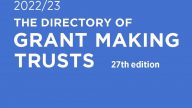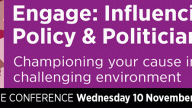Personal development, Marketing & communications
Learning new skills can help not just yourself but others too
DSC Researcher, Chester Howarth, reflects on experiences of self-doubt and explores how we can encourage more positive beliefs about our abilities and skills.
The way we think about our abilities can have a huge impact on what we think we can achieve. I recently participated in one of DSC’s courses and it gave me a gentle reminder that – with the right training and practice – we can all grow our skills and capabilities. This article offers some reflections on that thought process and why it matters.
Rollercoaster situations
Whether it’s in a work or learning environment, or even in our personal lives, we often find ourselves in situations which bring us head-to-head with our beliefs about our abilities and their limits.
I sometimes find that reading other people’s research or writing can feel like a rollercoaster. On the way up, an inspirational piece of work can create an uplifting feeling which sparks creativity; on the way down, this sense of inspiration can morph into a deflating feeling of self-doubt.
For me, this ‘way up’ feeling stems from a generative thought process: “this work is great, I want to do this too” and “if it’s possible for them, it’s possible for me”. Meanwhile, the ‘way down’ feeling seems to arise from a degenerative thought process: “they’re naturally good at this” or “I don’t have the ability to do that”.
These may be familiar thoughts. Regardless of the situation, the former thought pattern spurs action whilst the latter functions as a brake.
‘Fixed’ and ‘growth’ mindsets
These ‘way up’ and ‘way down’ feelings are related closely to the concepts of ‘growth’ and ‘fixed’ mindsets, respectively. Developed by US psychological researcher Carol Dweck, these terms refer to two contrasting beliefs that people often hold about learning.
A ‘fixed’ mindset refers to the belief that our intelligence – or our skill – is static or unchanging. That is, we have innate ability – giving us something to prove. On the other hand, a ‘growth’ mindset can be summarised as the belief that our intelligence can be developed. In other words, we have adaptable and malleable ability – giving us something to improve.
‘Trigger’ events
None of us live exclusively within the domain of either mindset. Certain situations – or, as Carol Dweck terms them, ‘triggers’ – like my own experiences described above, can pull us into a ‘fixed’ mindset, giving us that ‘way down’ feeling – a feeling of being limited, lacking innate ability, or not measuring up to others’ talents.
At the same time, there are situations or experiences which reinforce, or remind us of, a ‘growth’ mindset – helping us maintain that ‘way up’ feeling.
This is exactly what I experienced recently at one of DSC’s Editing for Impact courses. In just a few hours, I gained a host of concrete new tools and techniques which demystified the tricky process of editing. It focused my attention on what I can do to improve, reminding me that people who produce great writing will have their own practical methods rather than relying only on natural talent.
Why does it matter?
In the charity sector, encouraging a ‘growth’ mindset is not only important for employees’ or volunteers’ sense of self; it may also improve engagement, performance, satisfaction, and relationships at work. This is a crucial step in maximising our positive impact on the beneficiaries we work with and for.
Whilst we often work in an environment with fixed resources, we should remember that our skills and abilities are not fixed: they can grow. In other words, we can be conscious of what we can and cannot do ‘yet’.
By believing in ourselves and taking a growth mindset, we give ourselves the opportunity to improve. Surely that’s not just good for ourselves, or our organisations, but for the people we serve?
Click here to find out more about Editing for Impact and DSC’s extensive range of learning opportunities.


